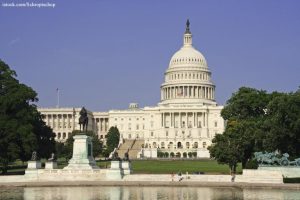On February 8, 2013, Secretary of Agriculture Tom Vilsack said that sequestration will affect the nation’s food safety. If Congress fails to act, on March 1, 2013 budget cuts go into effect across the board in the United States. “Across-the-board cuts for virtually every agency, every line item of every agency,” will occur, he stated. “The effects will be extraordinary.”
 He continued, “it is likely, if sequester is triggered, that in our food safety area we will have to furlough workers for a period of a couple of weeks. Now you say, well, you know, everybody gets a couple weeks’ vacation. The problem is, as soon as you take an inspector off the floor, that plant shuts down, so it’s not just the inspectors, it’s the hundreds of thousands of people who are in the processing business. Those plants shut down. Now, what impact and effect is that going to have on markets? It’s billions and billions of dollars of impact on the markets.”
He continued, “it is likely, if sequester is triggered, that in our food safety area we will have to furlough workers for a period of a couple of weeks. Now you say, well, you know, everybody gets a couple weeks’ vacation. The problem is, as soon as you take an inspector off the floor, that plant shuts down, so it’s not just the inspectors, it’s the hundreds of thousands of people who are in the processing business. Those plants shut down. Now, what impact and effect is that going to have on markets? It’s billions and billions of dollars of impact on the markets.”
Sequestration forces automatic budget cuts if Congress does not to come to an agreement on the budget. It was part of the 2011 Budget Control Act and represents a failure on the part of Congress to agree to a budget for the country. Congress must pass a deficit reduction proposal in order to avoid the cuts.
A White House fact sheet was released that contains a warning about the nation’s food safety. The Obama administration’s Office of Management and Budget (OMB) states that the FDA would conduct 2,100 fewer inspections at domestic and foreign food manufacturing plants. The White House said in a statement that those cuts “could increase the number and severity of safety incidents, and the public could suffer more foodborne illness, such as the recent Salmonella in peanut butter outbreak and the E. coli illnesses linked to organic spinach.”
The budget cuts, which total $1.2 trillion across the board over 10 years, will affect every government agency. In addition, programs that receive federal assistance, such as Meals on Wheels, would serve about 4 million fewer meals to seniors.




